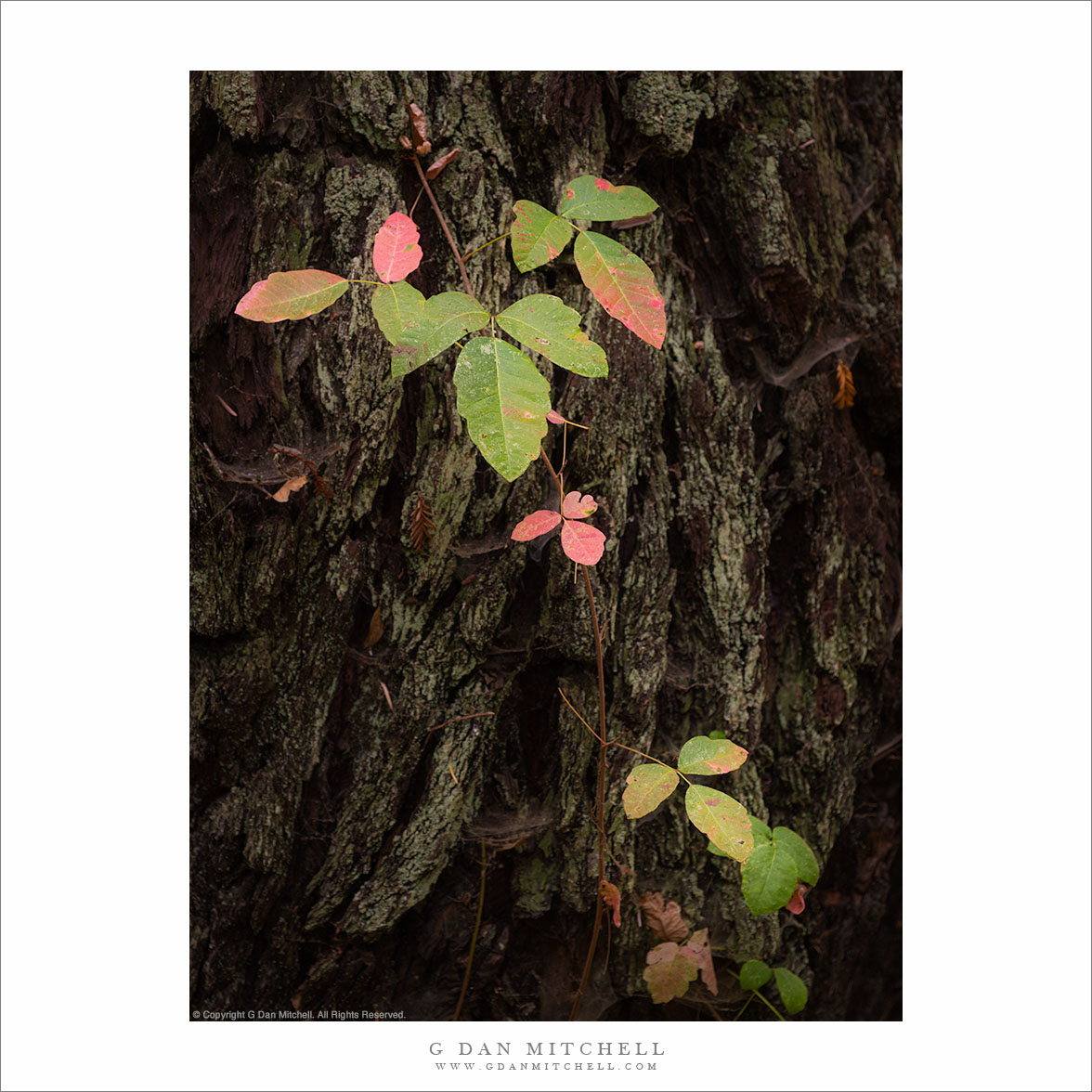
Aspens are not the only plants producing fall color here in California. The ubiquitous poison oak plants become even more red and start to pick up a bit of yellow/brown late in the season. The plant is widespread in wild areas of the state, ranging from coastal bluffs to oak forests to scrub brush, and California hikers soon learn how to identify it. The red leaves are a clue, but the oak shaped leaves in groups of three can mostly confirm it. (Though some wild berry plants have a similar appearance — but their stems have thorns, which are lacking on poison oak.)
The plant is flexible and grows in various ways. It can grow almost like a bush. Sometimes it is found in what amount to poison oak thickets. Low growing plants are sometimes found underneath other plants. It vines and can send runners up the trunks of trees, as is the case here. I photographed this example in a dark part of a forest at the Pfeiffer Big Sur State Park in the town of Big Sur.
G Dan Mitchell is a California photographer and visual opportunist. His book, “California’s Fall Color: A Photographer’s Guide to Autumn in the Sierra” is available from Heyday Books, Amazon, and directly from G Dan Mitchell.
Blog | About | Instagram | Flickr | Facebook | Threads | Post | Email
Links: Articles, Sales and Licensing, my Sierra Nevada Fall Color book, Contact Info.
Scroll down to share comments or questions. (Click post title first if viewing on the home page.)
All media © Copyright G Dan Mitchell and others as indicated. Any use requires advance permission from G Dan Mitchell.
Discover more from G Dan Mitchell Photography
Subscribe to get the latest posts sent to your email.
